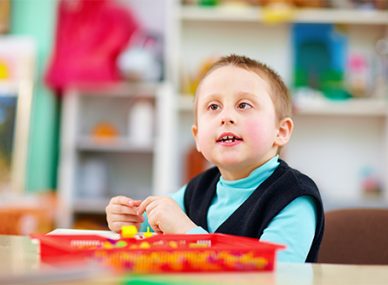The Intensive Therapy Program is a more flexible and effective option than traditional weekly therapy sessions. This is an “outpatient program” for those who desire to improve their mental and physical health quickly.
Intensive therapy is becoming more common as a therapeutic option for children, with a growing body of evidence supporting it. Children who get intense therapy demonstrate faster gains in strength, balance, independence, and functional mobility.
TheIntensive Therapy program provides your kids with a great opportunity to explore their habitual thoughts, feelings, physical sensations, basic beliefs, and problematic behaviors in a focused and in-depth manner.
Intensive Therapy-What Exactly Is It?
Intensive treatment, to put it simply, is any type of therapy that occurs frequently and for a short period of time. Whereas a child may receive hourly physical, speech, and occupational therapy weekly or biweekly in a standard model of treatment, children who participate in intense treatment may receive an hour of each of these disciplines 5 days a week for 3 weeks. Children are exposed to hundreds, if not thousands, of repetitions of certain exercises, developmental movements, and/or functional abilities over a very short amount of time under the intensive approach.
What Does Intensive Therapy Consist of?
The individualized intensive therapy programs in UAE are a combination of Occupational Therapy, Physical Therapy, Feeding Therapy, and Speech and Language Therapy.
Who are Ideal Candidates for Intensive Therapy?
Intensive therapy is appropriate, safe, and effective for children with autism, cerebral palsy, developmental delay, preterm, stroke, spina bifida, hypo/hypertonia, chromosomal abnormalities, syndromes, acquired brain injuries, developmental coordination deficit, and undiscovered disorders. Children as young as one year old can begin an intensive program and continue into young adulthood. The many intense treatments have contraindications, which should be evaluated by a competent practitioner.
How is Intensive Therapy Designed?
Individualized intensive programs are created for each kid depending on their age, diagnosis, medical history, parent goals, and current level of therapy engagement. Hope AMC, for example, takes a multidisciplinary approach to achieving a family’s goals, including physio, occupational, and speech treatments. The three-week Intensive Therapy Program is divided into five daily sessions every week. The session can last from 2 to 6 hours per day, depending on the child’s age, needs, condition, strengths, and weaknesses. A significant portion of this time is spent preparing the child for the exercises or tasks. The Spider Cage (body weight support system), Cuevas/MEDEK exercises, Beckman Oral Motor, sensory integration, PROMPT, and developmental eating approaches are some of the techniques and tools used in a multidisciplinary approach.
What is CME?
The Dynamic Method of Kinetic Stimulation (MEDEK) or CME (Cuevas MEDEK Exercise) uses particular workouts to enhance spontaneous postural adaptations against gravity. As the child advances, a fundamental component of this technique is to use a decreasing level of support during exercises. The exercises begin on a table and work their way down to the floor. There are seven pieces of equipment that may be set up in a variety of ways to provide a variety of challenges for the child. Children must be at least four months old and weigh less than thirty kilograms. Children with autism or other neurological issues can highly benefit from CME exercise.
What is PROMPT Therapy?
PROMPT stands for PROMPTs for Restructuring Oral Muscular Phonetic Targets. This method is a tactile-kinesthetic approach that employs touch signals to a patient’s articulators (jaw, tongue, and lips) to manually lead them through a targeted word, phrase, or sentence. The technique promotes motor control and the development of proper oral muscular movements and also reduces unnecessary muscle movements.
PROMPT speech treatment has been demonstrated to be highly successful in treating a wide range of speech delays and abnormalities. PROMPT therapy is most commonly used to address issues involving speech-sound production, such as motor speech difficulties, articulation delays, autism spectrum disorder, and apraxia of speech. Adults with aphasia or apraxia as a result of a stroke or other traumatic brain damage have also benefited from PROMPT therapy. From the age of six months onward, prompt therapy can be employed in a variety of forms and intensities.
How Can Hope AMC Help?
Hope AMC is UAE’s one of the top pediatric rehabilitation centers. We offer highly advanced intensive therapy programs for autism and other conditions in Dubai. Our therapy program delivers faster and more effective results than traditional therapy.
Our experienced therapists first assess the condition of each child and then design unique therapy plans to address the specific needs. Click here to explore more about our intensive therapy programs!
Consult our therapists today!





